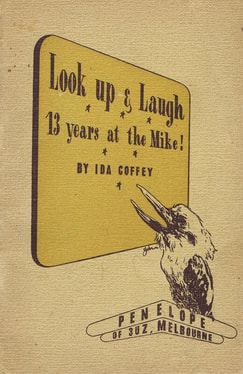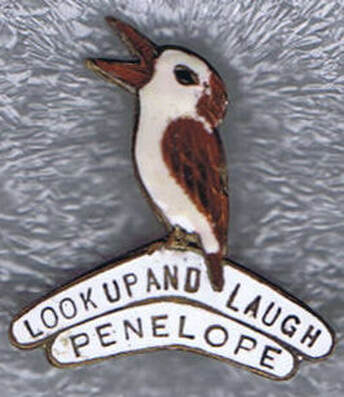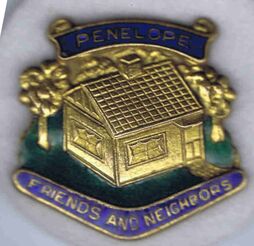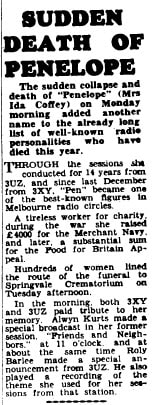| Ida Coffey became "Penelope" on Station 3UZ on the 7th March, 1932. She almost didn't make it. After a "Don't call us, we'll call you" interview, she received a telegram the next day, requesting her to return to 3UZ. Governing Director O.J. Nilson was well aware of how popular Women's Sessions were, during a recent tour of the U.S. "Penelope" then commenced a long career influencing Women listeners in a very structured morning session five days a week. |
Initially "Penelope" had to go chasing her own sponsors. After about 7 years there was a 4 year waiting list for sponsors on her radio session.
Her sessions opened with the record "Look Up & Laugh" at 9.00am Wednesday and in later years a Deanna Durbin record "Pull up a Chair" was introduced and for 15 minutes human interest talks and problems were discussed. Listeners views were included via letters written to the session.
There were also Interviews with visiting or local personalities.
The "Look Up & Laugh Club".
Penelope says Good Morning.
American news from Penelope.
Dainties for Madame.
Penelope says Good Morning to the Boys and Girls.
As Ida Coffey developed new outside interests, these became reflected in her sessions.
Cooking session every Wednesday at 10.30am.
Around the shops with Penelope.
Gardening Session. Theme music "Thank God for a Garden". "Penelope" once offered to send a cutting of a cacti to listeners who supplied the postage and anything above the cost would go to charity. 3 days later and almost 1,000 letters and 26 pounds to charity, Penelope knew she had the interest of gardeners.
Charities. Personally raising 4,000 pounds for Merchant Navy over 2 years. Lots of charity support from listeners over the years.
The session ended each day with "Sing as we go".
 From Author's Collection
From Author's Collection Despite offers from other Radio Stations, "Penelope" stayed at 3UZ for almost 16 years, only moving to 3XY in December 1948.
That was how two badges with nothing to identify them as Radio Listener Club badges or any affiliation to Radio, were linked.
If you mention "Penelope" to a woman of that era who lived in Melbourne, you might be lucky enough to hear more.
Ian Grieve



 RSS Feed
RSS Feed